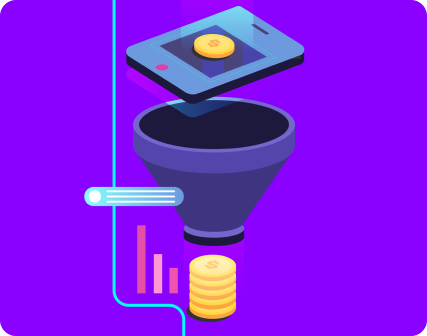AI personalization in e-commerce: creating a unique experience for every customer
E-commerce personalized shopping is no longer just a trend; it's a sure way to succeed. Companies that do this make up to 40% more profit. If you don't take a personalized approach, you could disappoint 76% of your consumers.
With the help of AI, you can now make shopping distinctive without spending a lot of money or going through complicated processes.
This post will describe how AI personalization in e-commerce works, what tools to use, and how to get the best outcomes with a minimum of time and cost.
What is AI Personalization in Ecommerce?
Ecommerce AI personalization is all about using tools powered by artificial intelligence to create a unique shopping experience for every visitor to your online store.
It's like having a salesperson who knows every customer, their favorite color, size, and even mood.
The only difference is that this “salesperson” can communicate with thousands of customers concurrently and tell each one what they want to hear, without breaks or days off.
AI personalization vs. traditional personalization
Traditional personalization typically operates based on fundamental algorithms: displaying products that users have previously purchased, sending standard recommendations, and so on.
Does it work? Surely! However, why use a spoon to dig a hole when you can use a shovel?
Yes, artificial intelligence can analyze larger data sets, from search queries to the time a user visits a website, and generate dynamic recommendations based on each customer's requests and moods.
This means that each user will receive different personalized offers based on the time of day, the device they are using, and their past interactions with the site.
What are the advantages for the owner of the business?
- A better understanding of users—figuring out hidden patterns in how customers act;
- Ability to respond in real time, which means addressing clients' sudden needs;
- Saving human resources means the team can work on other things;
- Higher conversion and average check — personalized offers increase sales;
- Customer loyalty means that happy customers are more inclined to buy from you again.
How to implement e-commerce personalization: 5 AI tried-and-true tools
As you’ve realized, AI personalization can take your e-commerce to an entirely new level of profitability — but how do you actually put it into practice?
You don't have to build everything from scratch or recruit a big team of experts anymore, which is good. You may add AI personalization in steps, and much of the work can be done by special programs and online tools.
Next, we’ll look at the best solutions for AI-powered personalization in e-commerce.
1. AdaptML (Dynamic Yield)
Dynamic Yield is an online personalization platform by Mastercard that features a built-in AI tool, AdaptML, designed to create a unique user experience. The platform is known for its extensive functionality and robust A/B testing options.
Useful features:
- Generates real-time product recommendations based on user behavior patterns;
- Analyzes a user’s interaction history with the platform, evaluates purchase intervals, and adapts recommendations accordingly;
- Takes into account product properties (such as material) to deliver more effective recommendations.
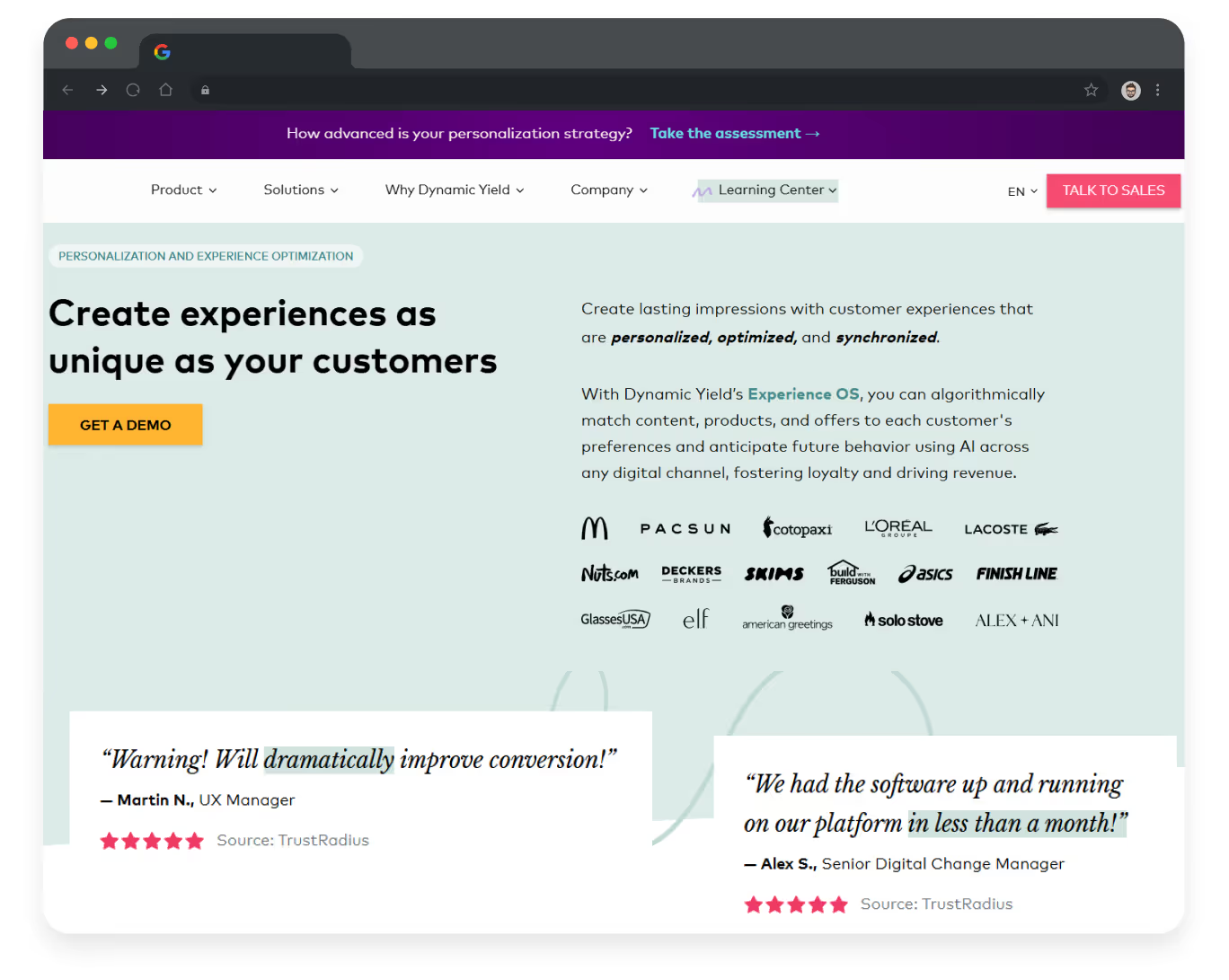
2. Nosto
The platform uses machine learning to deliver personalized recommendations, tailored content, and targeted offers based on shopper behavior, preferences, and demographic data at every stage of the funnel.
Useful features:
- Offers advanced user segmentation and analytics;
- Personalizes search, recommendations, banners, and more;
- Shortens the path to purchase so that users find the right product faster.
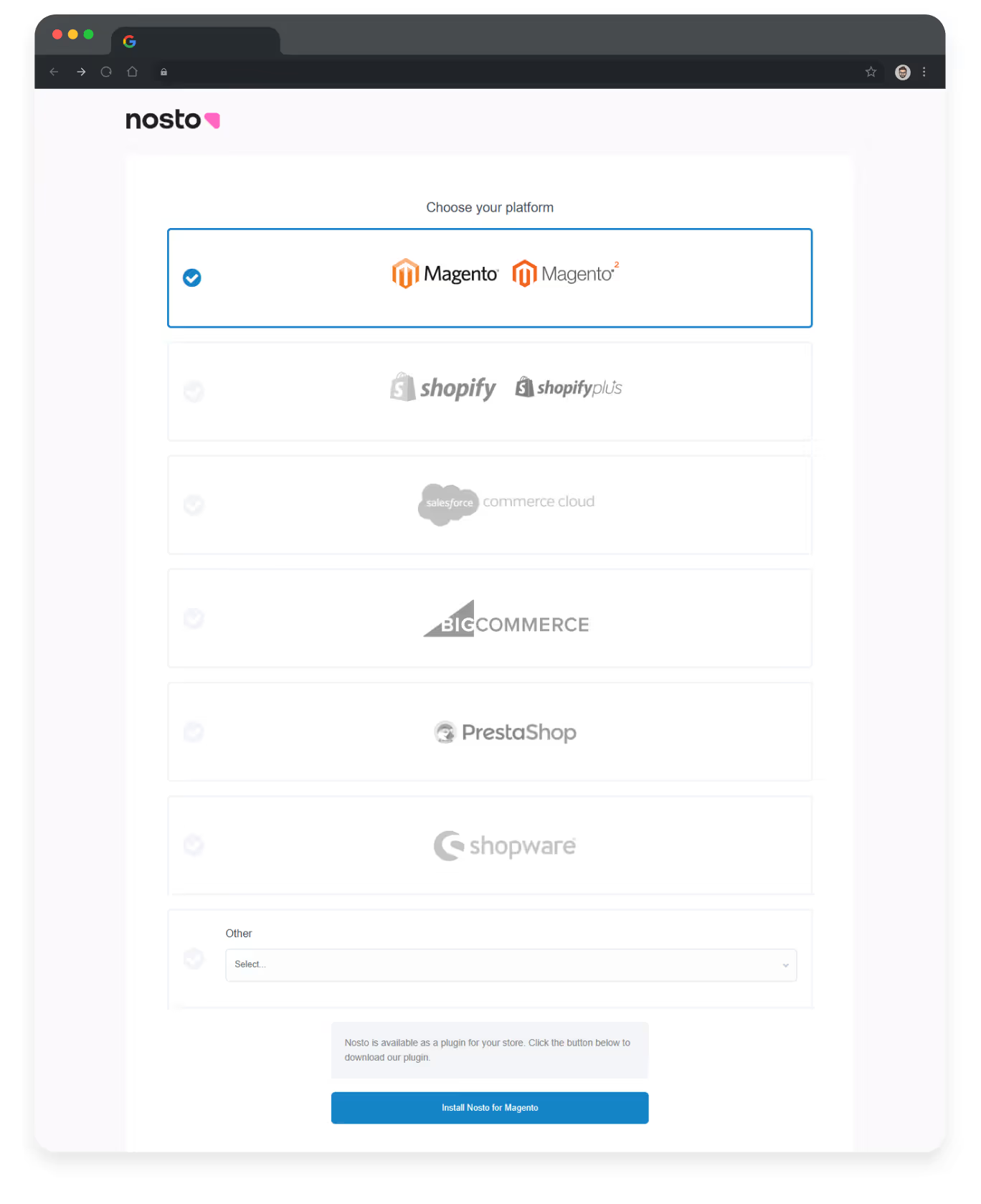
{{block}}
3. Recombee
An AI platform that generates user recommendations using various machine-learning algorithms (filtering methods, text analysis, deep learning, and more).
Useful features:
- Processes large volumes of data in real time, making it suitable for both medium and large businesses;
- Allows you to create custom recommendation algorithms via API;
- Its algorithms account for user behavior, synonyms, mistypes, and spelling mistakes, ensuring more accurate search results.
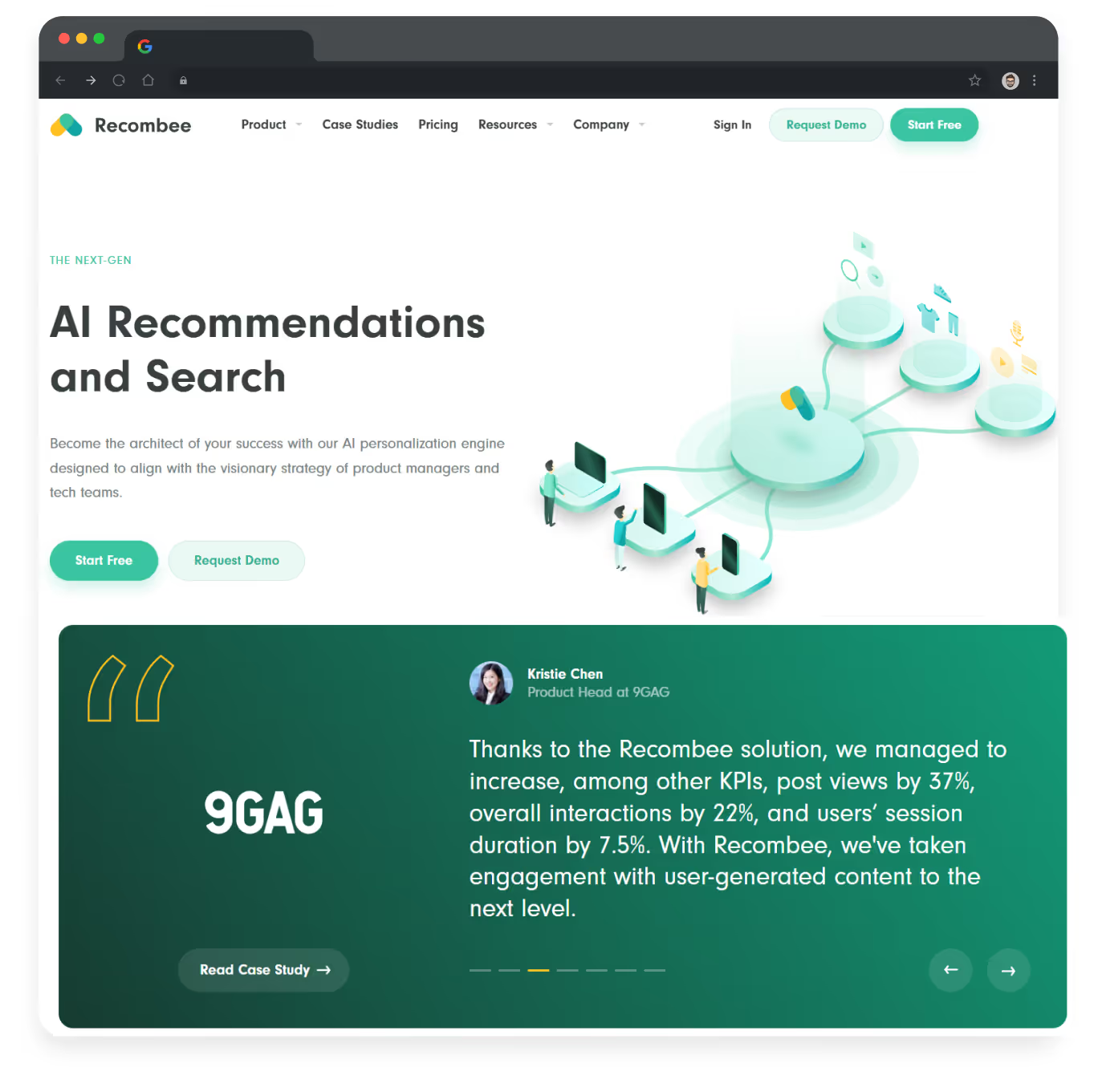
4. LimeSpot
An AI personalization platform that provides an individualized approach for every shopper. It offers extensive customization options and delivers personalized upsells, cross-sells, and other widgets in various formats.
Useful features:
- HTML content personalization: dynamically adjusts banners, texts, and CTA buttons based on the category the user is browsing, their location, device, or purchase history;
- Integration with e-commerce platforms (such as Shopify) and the ability to adapt recommendation layouts to match the store’s design;
- Personalization across all touchpoints: website, search, and email.
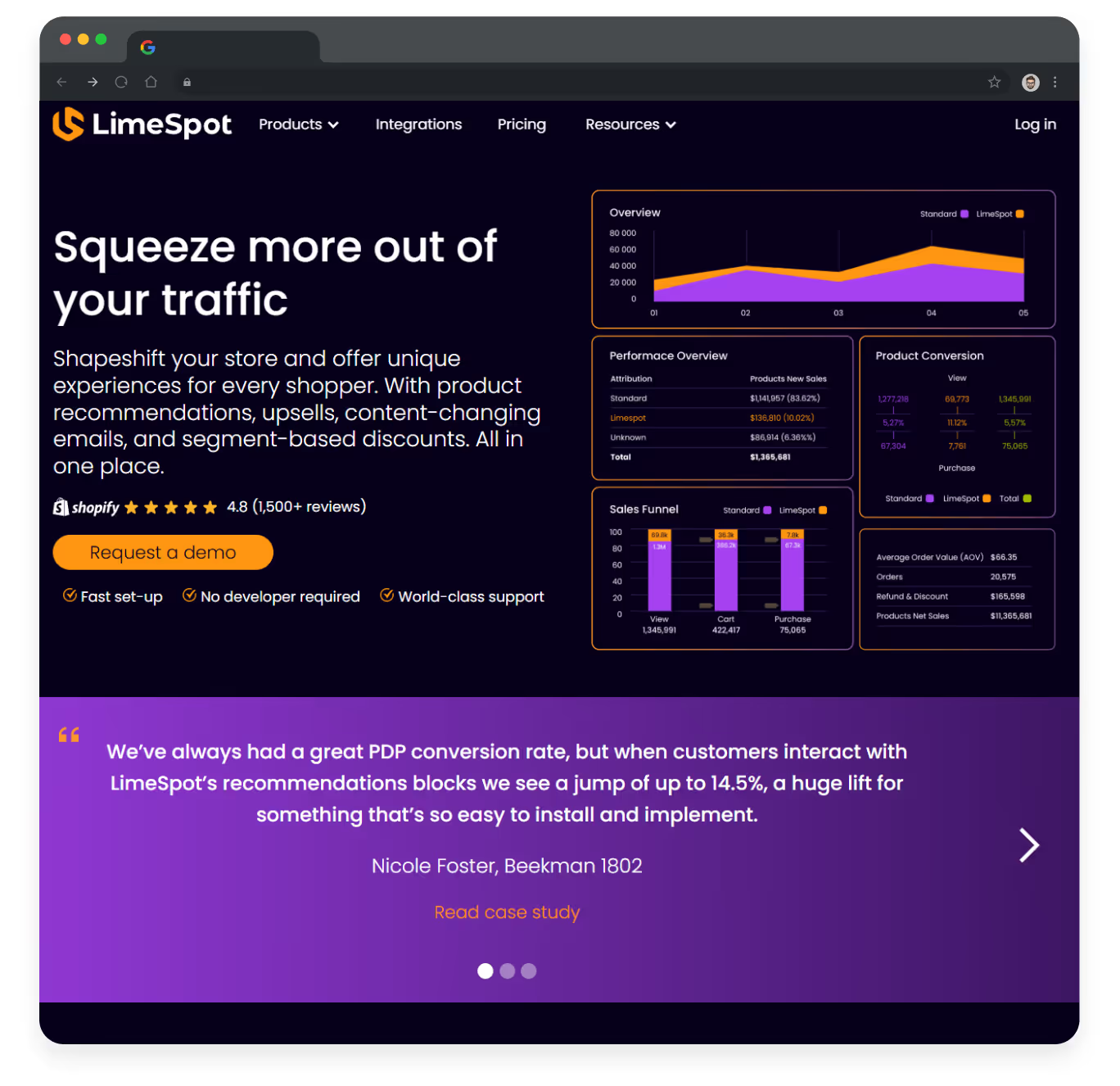
5. Optimizely
Another effective AI personalization platform for e-commerce designed to create a unique user experience.
Useful features:
- A visual editor for adapting page elements, meaning you can customize banners, text, and buttons based on specific audiences;
- Built-in statistical analysis and multivariate testing (A/B, MAB) to determine which solutions perform best;
- Personalized search and navigation: adjusts how search results are displayed for each user, taking filters and browsing history into account.
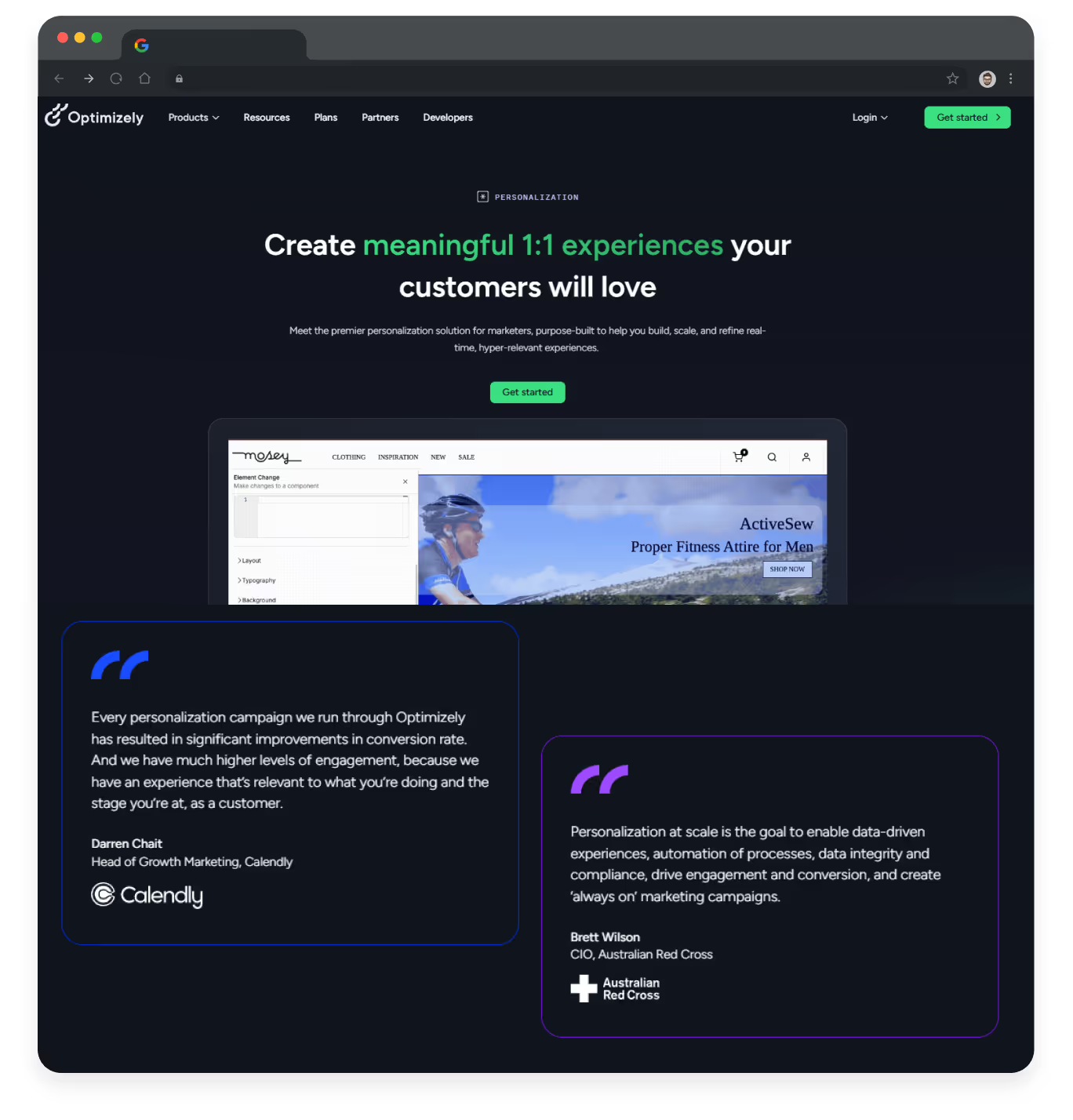
AI personalization with no fear: busting the biggest myths
Just like any cool new invention, artificial intelligence has its supporters and its critics. This part is all about digging into the most common rumors and myths about AI to see if those worries actually hold up.
Thesis #1: AI personalization is expensive
In fact, there are plenty of modern e-commerce AI personalization platforms available today, and most of them offer flexible pricing models and free plans (with limited functionality). Some of them also have demo versions and free trial periods.
Moreover, a Forrester economic study has shown that organizations that implement AI personalization can triple their profits and, therefore, quickly return the funds invested in the software.
Thesis #2: AI is difficult to configure without technical knowledge
In reality, most software and tools come with built-in integrations for platforms like Shopify, Magento, BigCommerce, and others. You can see such features even from our own selection of useful web products mentioned above.
Additionally, many platforms offer ready-made widgets, templates, and drag-and-drop interfaces, which significantly reduce the need for manual involvement. So even without a developer, you can create personalized recommendations, banners, or pop-up blocks.
Thesis #3: AI threatens the safety of personal data
Services that work with data follow GDPR and CCPA requirements, and personalization does not mean violating customer privacy. AI algorithms focus on analyzing a user’s behavior on a specific website rather than trying to build a psychological profile with all their pains and secrets.
That’s why a person’s purchase history is far more informative for AI personalization than their name or contact details.
Real-world cases of AI personalization: how renowned brands increase conversion rates
While you decide whether e-commerce AI personalization could be useful for you, let's find out how big market players are already using it and why their experience is worth paying attention to.
1. Sephora: revolutionary AI solutions in the beauty industry
Cosmetics are a rather opinionated product. What works perfectly for one customer may not suit another at all. Therefore, users in this niche often hesitate to buy a product, and the website may show a high bounce rate.
To avoid such trends, Sephora has implemented a range of AI solutions on its website (source) that make the brand's services top of the market:
1. Virtual Artist
A tool that allows users to visualize how selected cosmetics will look on their face.
AI algorithms analyze facial geometry, identify features such as the lips, eyes, and cheekbones, and apply digital makeup. For better personalization, the tool also evaluates product characteristics and customer reviews to refine its recommendations.
Result: After implementing Visual Artist, Sephora saw a 30% reduction in cosmetic product returns and a fourfold increase in average in-app session duration.
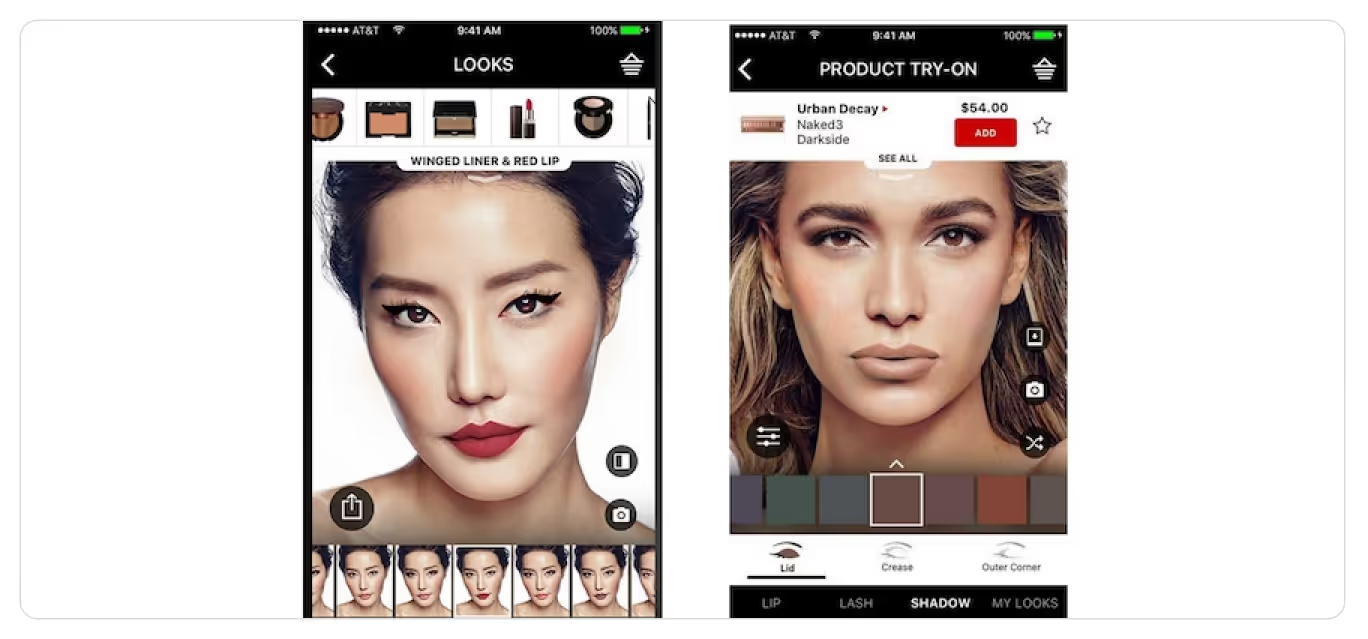
2. AI personalization for product recommendations
The system groups customers by behavioral types and predicts their needs based on past interactions and context. For example, someone browsing moisturizers in the summer may receive a selection of SPF product recommendations.
Sephora has also integrated AI into its loyalty program, so customers receive personalized offers with curated selections, exclusive sets, and restock reminders.
Result: The AI-powered recommendation system led to a 25% increase in average order value and a 17% rise in the number of loyal customers.
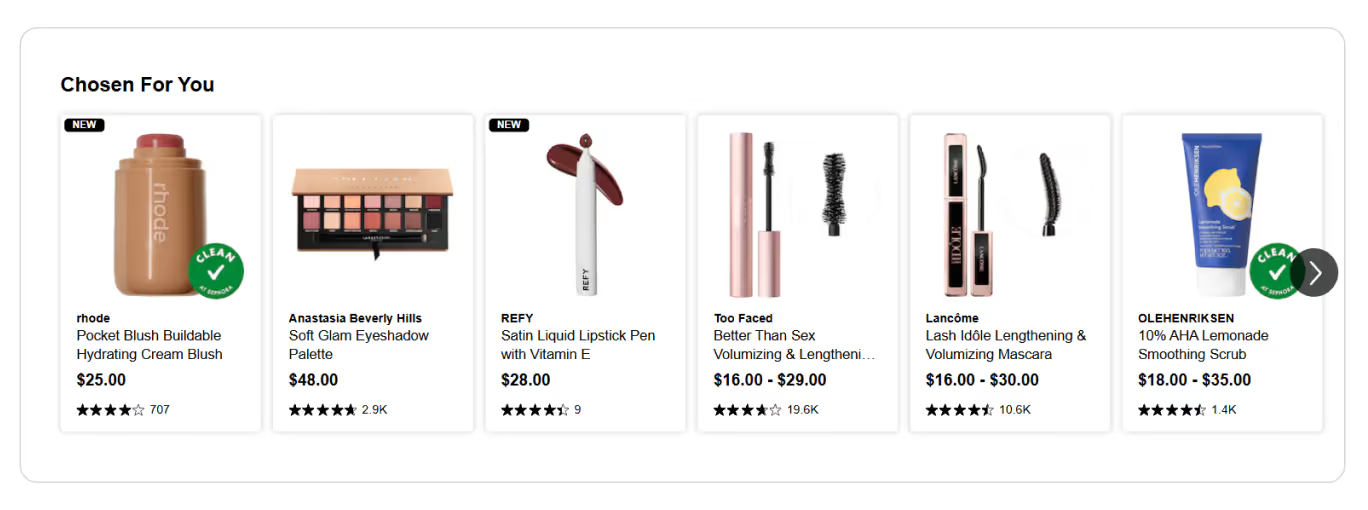
3. AI-powered chatbots
Sephora is scaling rapidly and expanding its customer base. As a result, the company receives a large number of inquiries on a wide range of topics — product properties, order information, delivery times, and more.
What’s more, a significant portion of the brand’s audience are young people who prefer messaging to phone calls or digging through FAQs.
That’s why Sephora created an AI-powered chatbot and integrated it into its digital products.
The chatbot understands user context and mood, asks clarifying questions, and includes direct links to tutorials, articles, and videos available on Sephora’s website.
Result: Over 75% of Sephora’s inquiries are handled by AI without human involvement. Response time has dropped to 10 seconds, abandoned carts decreased by 18%, and support costs were reduced by 20%.
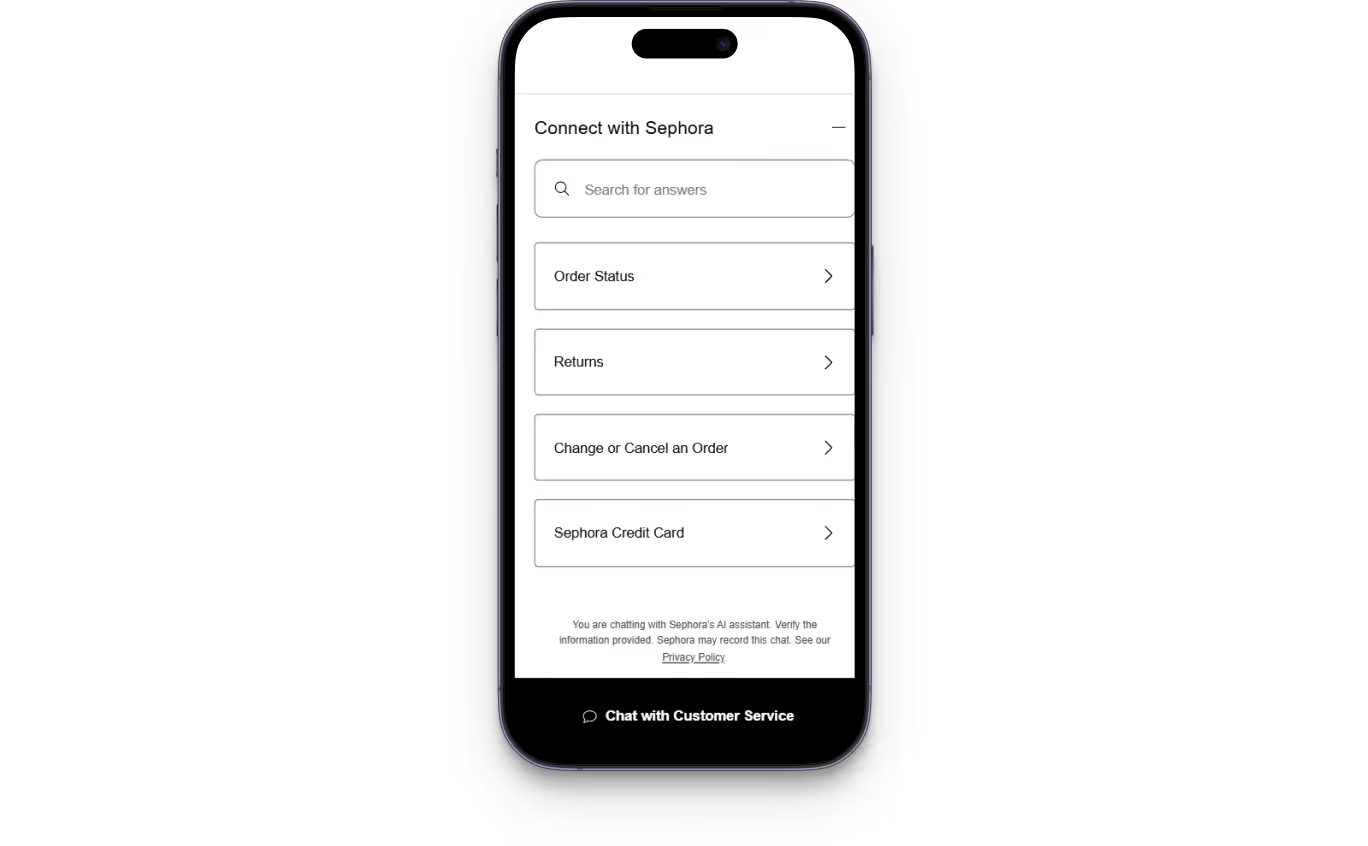
2. Etsy: Gift Mode як приклад нестандартної AI персоналізації
A successful business is one that understands its customers, making their lives easier and better. A good example of such a company is Etsy, an international online marketplace that specializes in handmade goods, vintage items, as well as creative supplies and digital products.
The company decided to adopt artificial intelligence to build a gift selection tool.
AI-powered Gift Mode
The idea is simple: a user launches Gift Mode or clicks the corresponding icon/section on Etsy and answers a few questions about the person they’re shopping for.
Based on the answers, the system pulls together a selection from Etsy’s massive catalog of products (over 100 million listings) that could make a great gift for the described recipient.
Result: happy clients, increased customer loyalty and sales, and clear market positioning.
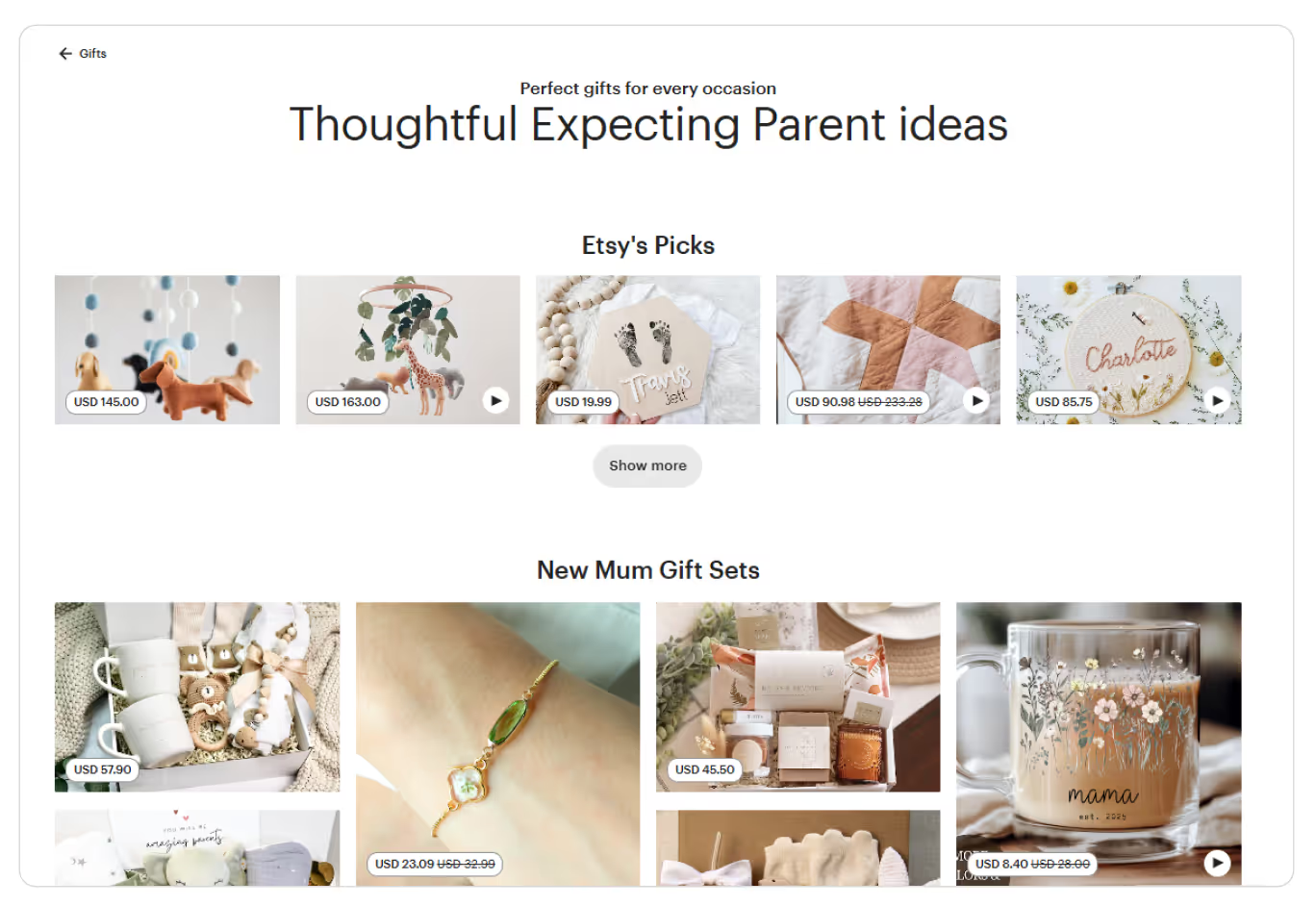
3. The Body Shop: AI e-commerce personalization at every stage of interaction
The Body Shop is an international brand of natural cosmetics that focuses on ethics and customer care. The brand boasts a high-quality user experience, thanks in part to the consistent implementation of AI personalization.
Personalized AI widgets
At different stages of the funnel, the user sees personalized blocks with products relevant to them — from the homepage to the product page. AI takes into account which categories the customer has viewed, how often they add items to the cart, and even when they are most likely to make a purchase.
The result: this consistent use of personalized widgets reduces the number of “cold” ads, increases the length of time users spend on the site, and lowers the bounce rate.

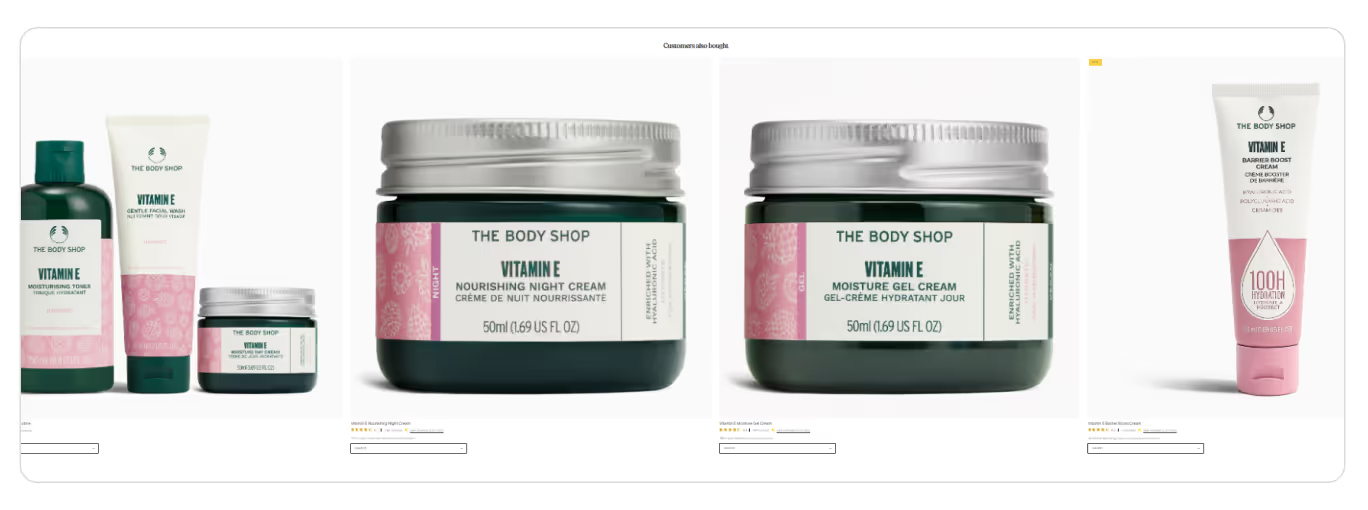
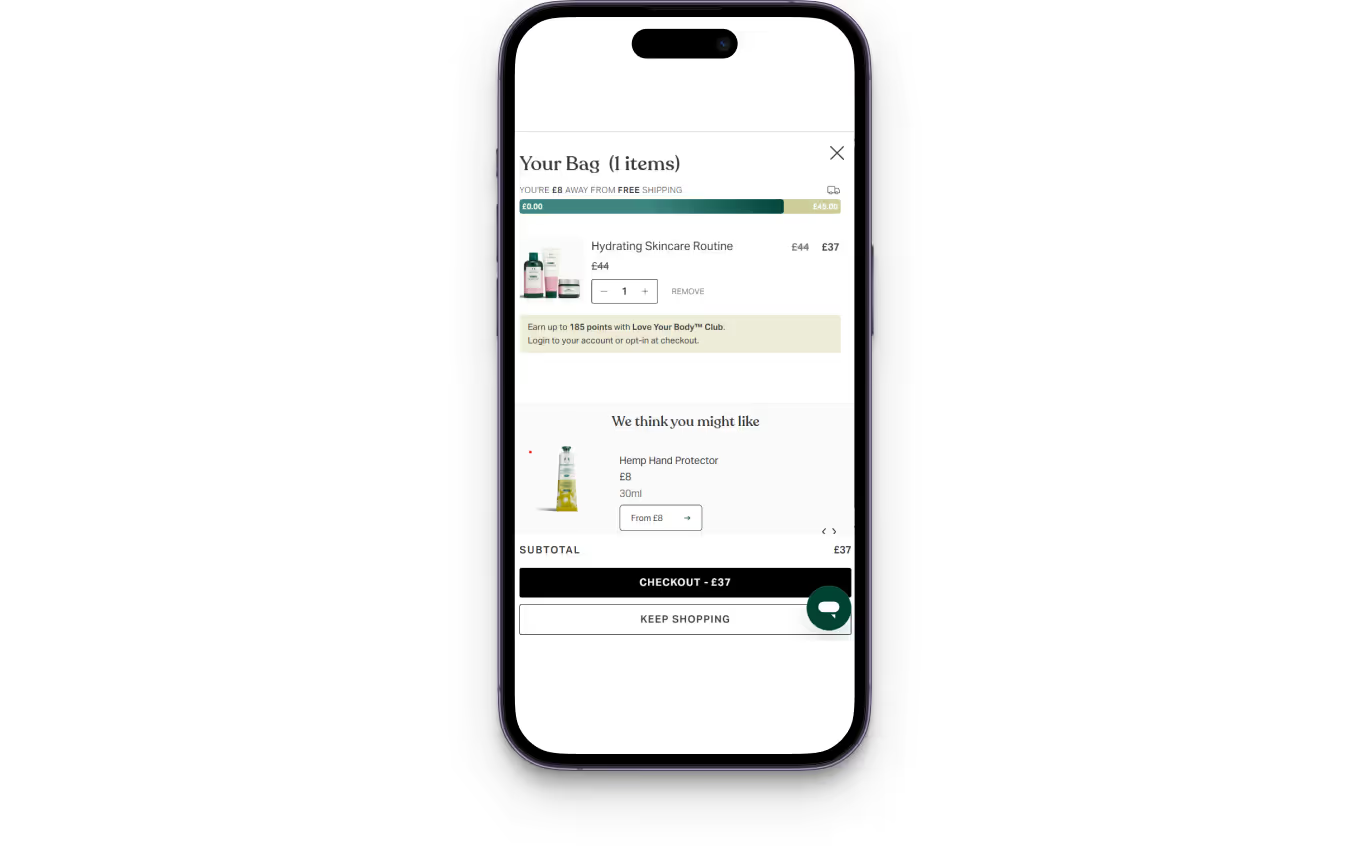
Wondering how famous brands in other niches, like Netflix or Spotify, use AI for personalization? Check out this article to find out.
{{block}}
Why AI Personalization Defines the Success of Modern Businesses
In the fiercely competitive e-commerce niche, only those companies that are able to understand their customers' needs and offer them a relevant, unique, and personalized experience remain at the top.
That is why AI personalization in e-commerce is an essential component for online business success. With real-time user behavior analysis, you can tailor personalized offers and optimize website interactions based on each visitor's interests, context, and mood.
Plus, modern AI personalization tools save your team time and resources by delegating routine tasks to algorithms, boosting your company's overall efficiency.
FAQ
How does AI affect e-commerce personalization?
AI can analyze large amounts of data in real time, predict user preferences and desires, and, as a result, offer them relevant products. This increases user loyalty and e-commerce conversion.
How is AI used in personalization?
Artificial intelligence personalizes the user experience by providing them with relevant recommendations, dynamic content, and convenient chatbots. By analyzing behavior, purchase history, and context (location, device, time), AI selects offers based on the specific preferences of each user.
How can AI be used in e-commerce?
In e-commerce, AI helps surface relevant products, simplify search, forecast demand, and support customers through chatbots. This saves time, increases sales, and makes the shopping experience more personalized for every user.
What is personalization in e-commerce?
It’s theA UX audit is the first step toward AI personalization for your e-commerce business that truly delivers results. Let’s talk about your business and identify your growth opportunities! creation of a unique, individualized interaction experience with an online store for every user, making the shopping process more engaging and more effective.
Question reference
Answer reference

More real-world Turum-burum cases?
Review our vast portfolio of cases in a variety of business fields to make sure of our expertise.
Go to Portfolio









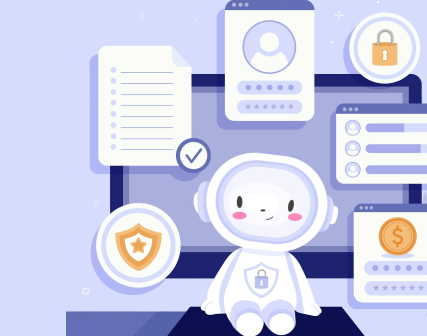


.png)



